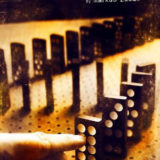The Great Bookcase in the Sky – A Morality Tale for Teen Literature Teachers

Melk Abbey Library
Imagine a bookcase that stretches a mile into the sky, where the easiest books to understand are on the bottom shelves and the most difficult books are on the highest shelves. When you’re in first grade you can only reach the books on the bottom. There are books by Dr. Seuss, Mercer Mayer and the Berenstains. You can’t reach the books on the top shelf: Dante, Milton, Sophocles, Aristotle.
As you get older and taller you can reach more books, but eventually you stop growing. That’s ok, you think, there are plenty of books on this shelf. And you’re right–there are hundreds of thousands of books on those lower shelves–enough to last your entire life. But that’s not enough for you. You want more. You want to reach the top. But you’re alone. You can’t do it yourself.
Then along comes a teacher. She sees your trouble and offers to help. She’s taller than you are, so she reaches up and hands you a few books that are slightly out of your reach. She brings them down to your level. But she can’t stay long, so soon you’re left alone.
After a while another teacher comes along. He offers to help by boosting you up. You jump up on his shoulders and start looking through all the wonderful titles three and four and five shelves up. You read as many as you can, but eventually the teacher has to move on. You can’t stand going back down to read only the first few shelves, so you cling to the shelves like a spider. With one hand you grasp the shelf, with the other you try to pull books out to read, but it’s not easy. You’re one false step away from falling.
Suddenly you hear a voice from above. “Need some help?” You look up and from the top shelf a teacher is calling. “I can’t get up there,” you call. And, near tears, you continue, “Please tell me what’s in those books.”
“Climb up and find out yourself,” she answers.
“I can’t reach,” you moan. “And I’m tired from hanging on.”
“Build a ladder,” she says.
“What?”
“Build a ladder.”
“I don’t have any tools or wood,” you complain.
She laughs. “Sure you do.” And she starts to climb down the shelves. How is she doing that? you ask yourself.
Finally she’s beside you, smiling. “What’s that in your hand?” You show her the book you just finished and she takes it from you. “Watch this.” And she takes the book and shoves it sideways into the bookshelf, so it sticks out. Then she steps on it and moves up to the next shelf.
Now you understand! Using the books on the lower shelves as stepping stones, you can climb as high as you like!
“Sometimes I get dizzy,” the teacher says, “so I climb back down and read a book on the ground, just for fun.” Then she moves off, leaving you alone again.
But this time you know what to do. Each book you read becomes a stepping stone to another book higher up. As you look up, the top doesn’t seem so high any more.
The Moral of the Story: Don’t be like the first teacher, who only brings one or two books down to the student’s level then moves on. Don’t be like the second teacher, who introduces great literature to the student them leaves him hanging. Be like the third teacher, who shows the student how to teach himself, so that when he’s on his own he can continue climbing to the top.
The Second Moral of the Story: Kids don’t need much help in reading books on the first few shelves. Once they reach junior high they can read ninety percent of the books in the world without any help at all. Don’t teach books that kids can read on their own. Teach them how to read books that are above them. Show them how to climb the shelves.
The Third Moral of the Story: You can’t show kids how to climb the shelves if you don’t know how to climb them yourself.
The Final Moral of the Story: You can’t make the student climb the bookcase. He has to want to. But you can make the top shelves look interesting enough that he wants to.












